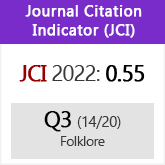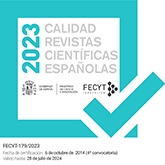Greek Anthropological Thought at the End of the Classical Age
DOI:
https://doi.org/10.3989/rdtp.2008.v63.i2.54Keywords:
Human Being, Speech, Natural World, Ctesias, Aristotle, TheophrastosAbstract
Aristotle’s interest in human nature ranges impressively over a large number of disciplines. In the last few years there has been an explosion of fresh research into this thinker’s representation of the human being; but above all it is the knowledge of different areas of Corpus aristotelicum —which for long was badly neglected— that has proved the most rewarding. Thus, some specialists have come to realize that Aristotle’s biological works are as interesting and important as his Politics, his Ethics or his Metaphysics for understanding his anthropological thought. The scope of the paper is these neglected areas of Corpus aristotelicum. Aristotle’s model, however, was not the only and decisive anthropological theory available at the end of the Classical Age. The author also discusses the historian and physician Ctesias —who had written a History of India one generation before, yet was very influential in Aristotelian times— as well as the Peripatetic philosopher Theophrastos.
Downloads
References
Aristófanes. 1991. Los acarnienses. Los caballeros. Las Tesmoforias. La asamblea de mujeres. Madrid: Cátedra.
Aristófanes. 1995. Las nubes. Las ranas, Pluto. Madrid: Cátedra.
Aristóteles. 1983. Acerca del alma. Madrid: Gredos.
Aristóteles. 1988. Política. Madrid: Gredos.
Aristóteles. 1992. Investigación sobre los animales. Madrid: Gredos.
Aristóteles. 1994. Reproducción de los animales. Madrid: Gredos.
Aristóteles. 1995. Tratados de lógica (Organon): Vol II (Sobre la interpretación. Analíticos Primeros. Analíticos Segundos). Madrid: Gredos.
Aristóteles. 1998a. Metafísica. Madrid: Gredos.
Aristóteles. 1998b. Ética nicomáquea. Ética eudemia. Madrid: Gredos.
Aristóteles. 1999. Retórica, Madrid: Gredos.
Aristóteles. 2000. Partes de los animales. Marcha de los animales. Movimiento de los animales. Madrid: Gredos.
Aristóteles. 2004a. Problemas. Madrid: Gredos.
Aristóteles. 2004b. Poética. Madrid: Biblioteca Nueva.
Baldry, Harold C. 1965. The Unity of Mankind in Greek Thougth. Cambridge: Cambridge University Press.
Battegazzore, Antonio M. 1998. “L’originalità della posizione teofrastea nel contesto del pensiero animalistico aristotelico e della fisiognomica zoo-etica tra Peripato, Stoa e loro critici”, en J. M. van Ophuijsen y M. van Raalte (eds.), Rutgers University Studies in Classical Humanities. Vol. VIII: Theophrastus (Reappraising the Sources): 223-266. New Brunswick- Londres: Transaction Publishers.
Bentham, Jeremy. 1970. Introduction of the Principles of Morals and Legislation. Londres: Methuen.
Beuchot, Maurizio. 2004. Ensayos marginales sobre Aristóteles. México: UNAM.
Bigwood, Joan M. 1989. “Ctesias’ Indika and Photius”. Phoenix 43: 302-316. doi:10.2307/1088298
Bigwood, Joan M. 1991. “Ctesias’ Parrot”. Classical Quarterly 41: 321-327.
Bubner, Rüdiger. 1993. “Langage et politique”, en P. Aubenque (dir.) y A. Tordesillas (ed.), Aristote politique. Études sur la Politique d’Aristote: 351-365. París: Presses Universitaires de France.
Cauquelin, Anne. 1990. Aristote: le langage. París: Presses Universitaires de France.
Ciani, M.ª Grazia. 1987. “The Silences of the Body: Defect and Absence of Voice in Hippocrates”, en M.ª G. Ciani (ed.), The Regions of Silence. Studies on the Difficulty of Communicating: 145-172. Ámsterdam: Gieben.
Cole, E. Browling. 1992. “Theophrastus and Aristotle on Animal Inteligence”, en W. W. Fortenbaugh y D. Gutas (eds.), Rutgers University Studies in Classical Humanities. Vol. V: Theophrastus (His Psychological, Doxographical, and Scientific Writings): 44-62. New Brunswick-Londres: Transactions Publishers.
Dawson, Doyne. 1992. Cities of the Gods: Communist Utopias in Greek Thought. Oxford: Oxford University Press.
Detienne, Marcel. 1972. Les Jardins d’Adonis. París: Gallimard.
Dunn, John. 1996. La agonía del pensamiento político occidental. Cambridge: Cambridge University Press.
Diodoro De Sicilia. 2001. Biblioteca histórica (Libros I-V). Madrid: Gredos.
Dover, Kenneth J. 1993. Greek Popular Morality in the Time of Plato and Aristotle. Indianápolis: Hackett.
Eggers, Conrado y Juliá, Victoria. 1978. Los filósofos presocráticos (Vol. I). Madrid: Gredos.
Esquilo. 2000. Tragedias. Madrid: Gredos.
Fontenay, Elisabeth De. 1997. “La Philanthro -pia à l’épreuve des bêtes”, en B. Cassin, J.-L. Labarrière (eds.), G. Romeyer Dherbey (dir.), L’Animal dans l’Antiquité: 281-298. París: Vrin.
Ford, Andrew. 1992. Homer: The Poetry of the Past. Ithaca: Cornell University Press.
Fortebbaugh, William. 1971. “Aristotle: Animals, Emotion, and Moral Virtue”. Arethusa 4: 137-165.
Fortebbaugh, William. 2003. Theophrastian Studies. Stuttgart: Steiner.
Gaca, Kathy L. 2003. The Making of Fornication: Eros, Ethics, and Political Reform in Greeks Philosophy and Early Christianity. Berkeley: University of California Press.
Gadamer, Hans-Georg. 1998. Arte y verdad de la palabra. Barcelona: Paidós.
García Quintela, Marco Virgilio. 1999. Mitología y mitos de la Hispania prerromana III. Madrid: Akal.
Gera, Deborah L. 2003. Ancient Greek Ideas on Speech, Language, and Civilization. Oxford: Oxford University Press.
Gil, Juan. 1995. La India y el Catay. Textos de la Antigüedad clásica y del Medievo occidental. Madrid: Alianza.
Gotthelf, Allan Y Lennox, James G. (eds.). 1987. Philosophical Issues in Aristotle’s Biology. Cambridge: Cambridge University Press.
Homero. 1993. Ilíada. Madrid: Cátedra.
Homero. 2005. Odisea. Madrid: Gredos.
Hadreas, Peter J. 1995. “Eὑνοια: Aristotle on the Beginning of Friendship”. Ancient Philosophy 15: 393-402.
Hall, Edith. 1989. Inventing the Barbarian: Greek Self-Definition through Tragedy. Oxford: Clarendon Press.
Heath, John. 2005. The Talking Greeks: Speech, Animals, and the Other in Homer, Aeschylus, and Plato. Cambridge: Cambridge University Press.
Heródoto. 2000. Historia (5 Vols.). Madrid: Gredos.
Hesíodo. 1990. Obras y fragmentos. Madrid: Gredos.
Jenofonte. 1993. Recuerdos de Sócrates. Económico. Banquete. Apología de Sócrates. Madrid: Gredos.
Jenofonte. 2000. Anábasis. Madrid: Gredos.
Labarrière, Jean-Louis. 2002. “Le Caràctere musical de la voix chez Aristote: apótasis, mélos, diálektos”. Philosophie Antique 2: 98-108.
Labarrière, Jean-Louis 2004. Langage, vie politique et mouvement des animaux. Études aristotéliciennes. París: Vrin.
Laurent, Jérôme. 1996. “La Voix humaine (De anima II, 8, 420b 5- 421a 3)”, en G. Romeyer Dherbey (dir.) y C. Viano (ed.), Corps et ame. Sur le De anima d’Aristote: 169-192. París: Vrin.
Lenfant, Dominique. 1999. “Monsters in Greek Ethnography and Society in the Fifth and Fourth Centuries B. C.”, en R. Buxton (ed.), From Myth to Reason? Studies in the Development Greek Thought: 197-214. Oxford: Oxford University Press.
Long, Anthony A. 1972. “Language and Thought in Stoicism”, en A. A. Long (ed.), Problems in Stoicism: 75-113. Londres: Athlone Press.
Louis, Pierre. 1955. “Le Mot istor…a chez Aristote”. Revue de Philosophie 29: 39-44.
Lloyd, Geoffrey E. R. 1983. Science, Folklore, and Ideology: Studies in the Life Sciences in Ancient Greece. Cambridge: Cambridge University Press.
Melero, Antonio. 1996. Los sofistas. Testimonios y fragmentos. Madrid: Gredos.
Mosterín, Jesús. 1994. Filosofía de la cultura. Madrid: Alianza.
Montiglio, Silvia. 2000. Silence in the Land of Logos. Princeton: Princeton University Press.
Pembroke, Simon G. 1972. “Oikeio sis”, en A. A. Long (ed.), Problems in Stoicism: 114-149. Londres: Athlone Press.
Platón. 1997a. Diálogos. Vol. I: Apología. Critón. Eutifrón. Ion. Lisis. Cármides. Hipias Menor. Hipias Mayor. Laques. Protágoras. Madrid: Gredos.
Platón. 1997b. Diálogos. Vol. II: Filebo. Timeo. Critias. Madrid: Gredos.
Platón. 1998. Diálogos. Vol. V: Parménides. Teeteto. Sofista. Político. Madrid: Gredos.
Platón. 1999a. Diálogos. Vol. III: Gorgias. Menéxeno. Eutidemo. Menón. Crátilo. Madrid: Gredos.
Platón. 1999b. Las leyes. Madrid: Centro de Estudios Políticos y Constitucionales.
Poratti, ÁngeL et al. 1997. Los filósofos presocráticos (Vol. III). Madrid: Gredos.
Porfirio. 1984. Sobre la abstinencia. Madrid: Gredos.
Porfirio. 1987. Vida de Pitágoras. Argonáuticas órficas. Himnos órficos. Madrid: Gredos.
Pokorny, Julius. 1994. Indogermanisches etymologisches Wörterbuch. I Band. Tubinga-Basilea: Francke.
Renehan, Robert. 1981. “The Greek Anthropocentric View of Man”. Harvard Studies in Classical Philology 85: 239-259. doi:10.2307/311176
Rist, John M. 1996. Man, Soul, and Body: Essays in Ancient Thought from Plato to Dionysius. Aldershot: Variorum.
Romm, James. 1992. The Edges of the Earth in Ancient Thought: Geography, Exploration, and Fiction. Princeton: Princeton University Press.
Sabbatucci, Dario. 1991. Saggio sul misticismo greco. Roma: Edizioni dell’Ateneo & Bizarri.
Sadun Bordoni, Gianluca. 1994. Linguaggio e realtà in Aristotele. Roma- Bari: Laterza.
Sassi, M.ª Michela. 1988. La scienza dell’uomo nella Grecia antica. Turín: Bollati Boringhieri.
Singer, Peter. 1995. Animal Liberation. Londres: Pimlico.
Sófocles. 1981. Tragedias. Madrid: Gredos.
Sorabji, Richard. 1995. Animal Minds and Human Morals: The Origins of Western Debate. Ithaca: Cornell University Press.
Sosin, Joshua D. 1997. “A Word for Women?”. Greek, Roman, and Byzantine Studies 38: 75-83.
Wilson, Malcolm C. 2000. Aristotle’s Theory of the Unity of Science. Toronto: University of Toronto Press.
Wittkower, Rudolph. 1942. “Marvels of the East: A Study in the History of Monsters”. Journal of the Warburg and Courtauld Institutes 5: 159-197. doi:10.2307/750452
Downloads
Published
How to Cite
Issue
Section
License
Copyright (c) 2008 Consejo Superior de Investigaciones Científicas (CSIC)

This work is licensed under a Creative Commons Attribution 4.0 International License.
© CSIC. Manuscripts published in both the printed and online versions of this Journal are the property of Consejo Superior de Investigaciones Científicas, and quoting this source is a requirement for any partial or full reproduction.All contents of this electronic edition, except where otherwise noted, are distributed under a “Creative Commons Attribution 4.0 International” (CC BY 4.0) License. You may read here the basic information and the legal text of the license. The indication of the CC BY 4.0 License must be expressly stated in this way when necessary.
Self-archiving in repositories, personal webpages or similar, of any version other than the published by the Editor, is not allowed.















